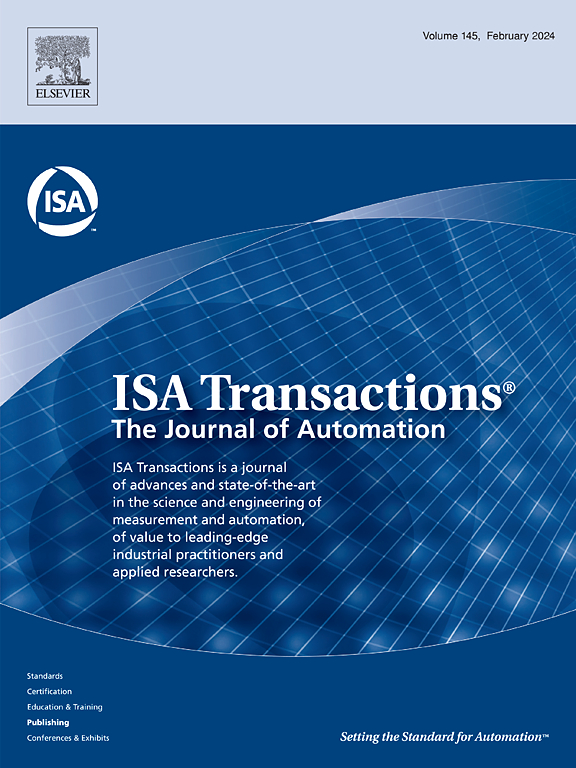Cost optimization for Computer Numerical Control machining workshop: A queueing modeling approach using the meta-heuristic techniques
IF 6.5
2区 计算机科学
Q1 AUTOMATION & CONTROL SYSTEMS
引用次数: 0
Abstract
This research paper introduces an innovative approach to optimize repair of failed Computer Numerical Control (CNC) machines within CNC machining workshops by leveraging queueing theory. The proposed model addresses a spectrum of real-world scenarios encountered in manufacturing environments, including CNC machine failures, robotic server breakdowns, reneging behavior of failed CNC machines, and mechanisms to handle unsatisfactory repairs. In this system, failed CNC machines are attended by a single robotic server following a first come first served protocol, while also accounting for potential breakdowns of the robotic server during servicing. The arrival of failed CNC machines is regulated using the -policy, and repairs to the robotic server are conducted following Bernoulli’s -phases under a threshold recovery () policy. Through the development of steady-state equations of a system and their solutions through matrix-analytic techniques, the distribution of queue sizes within the system is derived. Numerical results are presented graphically to illustrate the influence of various parameters on overall system performance. Additionally, sensitivity analysis on total expected costs are conducted to assess the impact of parameter variations. To optimize system costs, three meta-heuristic approaches are employed: Particle Swarm Optimization(PSO), Ant Colony Optimization(ACO), and Flower Pollination Algorithm(FPA). Comparative analysis of these techniques’ performances is conducted using data generated through their application. This novel combination of theoretical modeling, numerical analysis, and meta-heuristic optimization offers a comprehensive framework for enhancing efficiency and cost-effectiveness in CNC machining workshops.
计算机数控加工车间成本优化:一种使用元启发式技术的排队建模方法。
本文介绍了一种利用排队理论优化数控加工车间故障数控机床维修的创新方法。提出的模型解决了制造环境中遇到的一系列现实场景,包括数控机床故障、机器人服务器故障、故障数控机床的违约行为以及处理不满意维修的机制。在这个系统中,故障的数控机床由一个机器人服务器按照先到先服务的协议来处理,同时也考虑到机器人服务器在维修期间可能出现的故障。故障数控机床的到达使用f策略进行调节,机器人服务器的维修在阈值恢复(Q)策略下按照伯努利p阶段进行。通过建立系统的稳态方程,并利用矩阵解析技术推导出系统内队列大小的分布。数值结果以图形形式说明了各种参数对系统整体性能的影响。此外,对总预期成本进行了敏感性分析,以评估参数变化的影响。为了优化系统成本,采用了三种元启发式方法:粒子群优化(PSO)、蚁群优化(ACO)和花授粉算法(FPA)。利用应用过程中产生的数据对这些技术的性能进行了比较分析。这种理论建模、数值分析和元启发式优化的新组合为提高CNC加工车间的效率和成本效益提供了一个全面的框架。
本文章由计算机程序翻译,如有差异,请以英文原文为准。
求助全文
约1分钟内获得全文
求助全文
来源期刊

ISA transactions
工程技术-工程:综合
CiteScore
11.70
自引率
12.30%
发文量
824
审稿时长
4.4 months
期刊介绍:
ISA Transactions serves as a platform for showcasing advancements in measurement and automation, catering to both industrial practitioners and applied researchers. It covers a wide array of topics within measurement, including sensors, signal processing, data analysis, and fault detection, supported by techniques such as artificial intelligence and communication systems. Automation topics encompass control strategies, modelling, system reliability, and maintenance, alongside optimization and human-machine interaction. The journal targets research and development professionals in control systems, process instrumentation, and automation from academia and industry.
 求助内容:
求助内容: 应助结果提醒方式:
应助结果提醒方式:


